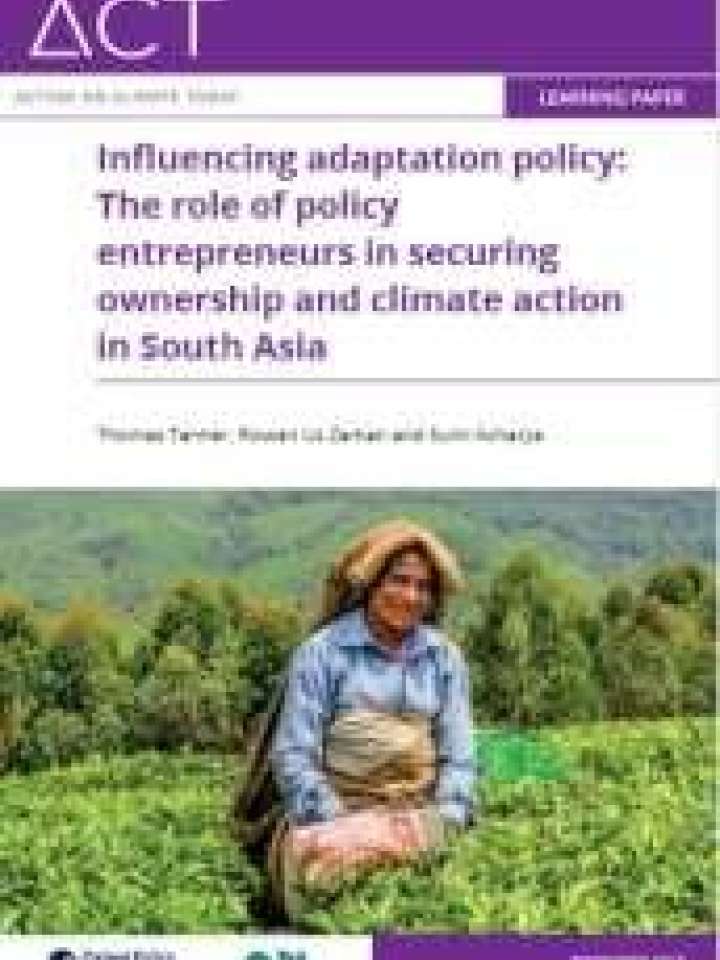Influencing adaptation policy: the role of policy entrepreneurs in securing ownership and climate action in South Asia
The mainstreaming of climate change adaptation concerns into government development policies, planning and sectoral decision-making is now common place due to the widespread understanding of the importance of adapting development pathways to a changing climate.
In contrast to the transferable lessons on adaptation mainstreaming in the form of technical approaches (risk assessments and toolkits), this paper provides an empirically informed review of some of the more tacit and informal approaches used to influence adaptation policy.
This review highlights the particular role of policy entrepreneurs who work in policy-making arenas to promote policy change. They navigate the political complexity of both formal and informal systems of governance to promote successful adaptation mainstreaming processes, through brokering, advocacy and networking to influence policy.
Building on previous policy influencing perspectives from the political science literature, the paper uses empirical examples from the Action on Climate Today (ACT) programme in South Asia to create a typology of influencing strategies that includes:
- Stories and narratives – using simplified stories that help decision-makers make sense of complex realities, including by linking climate action to development objectives;
- Rapport and trust – building trust in the programme and its staff and the advice being offered;
- Cheerleaders and champions – nurturing and rewarding leaders and leadership;
- Advocacy and networking – harnessing and developing networks on adaptation inside and outside government;
- Downstream implementers – influencing action on the ground by working with those who actually implement, rather than set, policy.
Drawing on these examples and foregrounding the importance of informal and tacit strategies for policy influence can help others who are designing and providing technical assistance to support national and sub-national governments to mainstream adaptation into their policies.
Explore further
